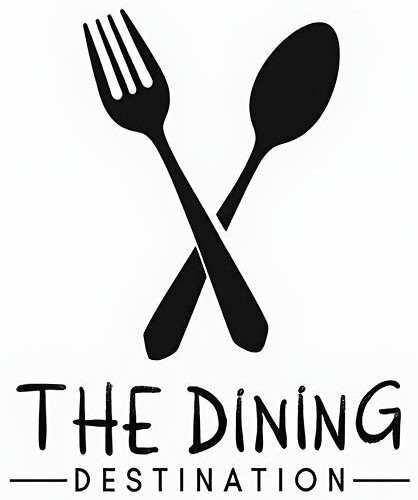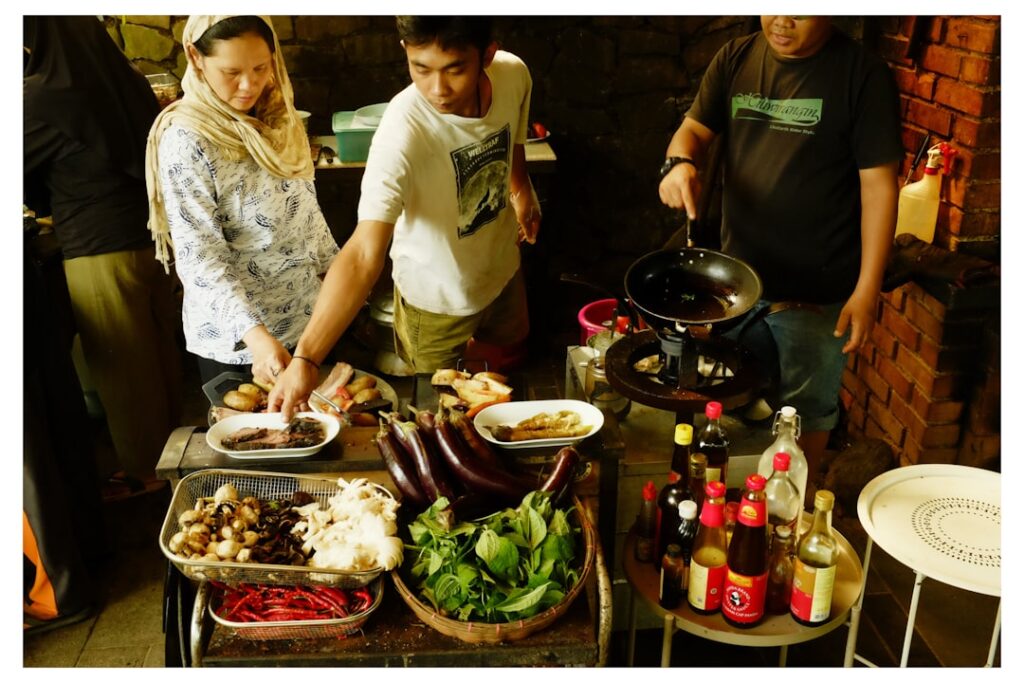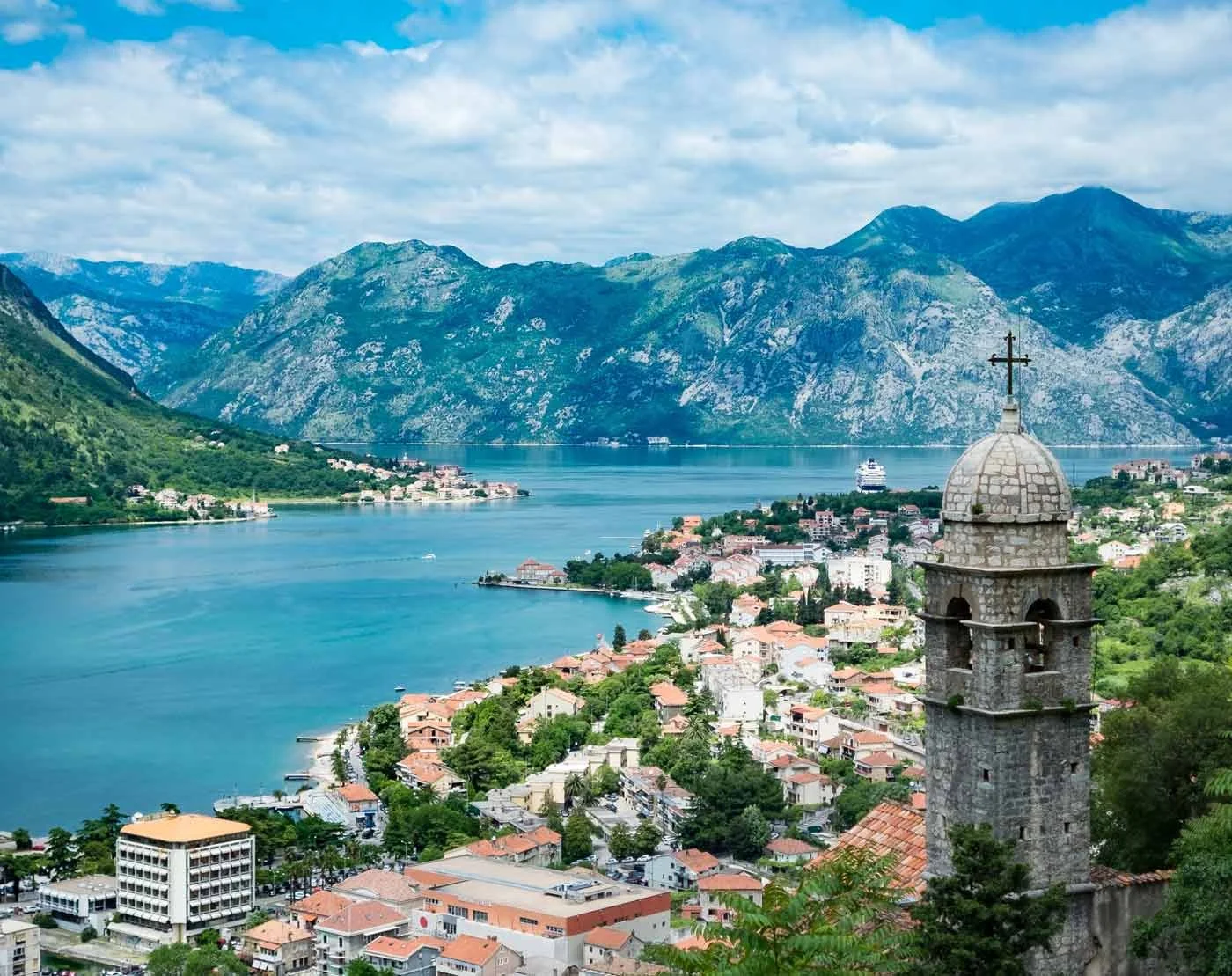Why Culinary Workshop Travel is Revolutionizing How We Experience the World
Culinary workshop travel combines hands-on cooking instruction with cultural immersion, offering travelers the chance to learn authentic recipes directly from local chefs and home cooks in their native kitchens. Unlike traditional food tours that focus on tasting, these experiences teach you to recreate the flavors at home.
Key Benefits of Culinary Workshop Travel:
- Hands-on learning – Cook alongside local experts, not just watch
- Cultural immersion – Learn food traditions and stories behind dishes
- Small groups – Typically 12-20 people for personalized attention
- Take-home skills – Recipe collections and techniques you can use forever
- Authentic locations – Private homes, local markets, family farms
- Multi-day experiences – 3-7 day programs for deep skill building
The concept goes far beyond a simple cooking class. These programs typically start with early morning market tours where you learn to select ingredients, then move to hands-on cooking sessions, and end with communal meals where cultural stories unfold naturally.
What sets culinary workshop travel apart is the emphasis on why dishes are prepared certain ways, not just how. You’ll find the history behind Sicilian cuisine’s blend of Italian, Greek, Spanish, and Arab influences, or understand why Peruvian markets showcase 3,500 potato varieties.
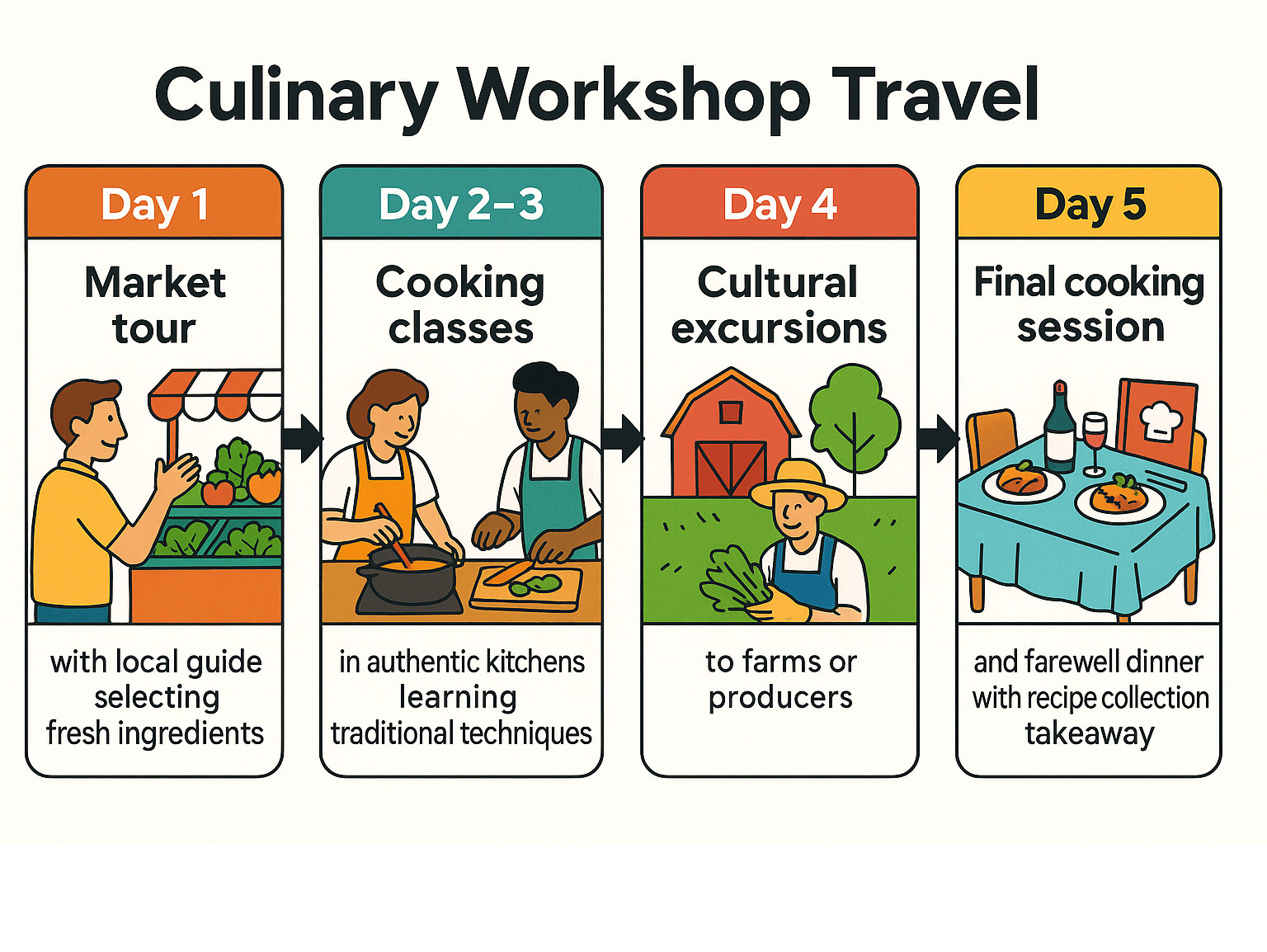
Basic culinary workshop travel terms:
Understanding Culinary Workshop Travel
Food tourism has evolved from simply hopping between restaurants. Today’s travelers want something deeper – they want to roll up their sleeves and truly understand the cultures they’re visiting. Culinary workshop travel represents this exciting shift, changing curious food lovers into confident home cooks.
Culinary workshop travel serves as your passport to the heart of local food culture. Instead of watching from the sidelines, you’re diving into busy markets at dawn, learning to spot the ripest tomatoes from vendors who’ve perfected their craft for decades. You’re standing shoulder-to-shoulder with local cooks in their private kitchens, finding family secrets passed down through generations.
These experiences unfold in authentic settings – farm visits where you harvest ingredients, or cozy family homes where kitchens tell stories of Sunday dinners and holiday celebrations. The magic happens in small groups of typically 12-20 people, ensuring personal attention that makes the difference between following along and truly mastering new skills.
| Culinary Workshop Travel | Traditional Food Tours | Stand-alone Cooking Classes |
|---|---|---|
| Multi-day immersion (3-7 days) | Single day experiences | 2-4 hour sessions |
| Hands-on cooking + cultural context | Primarily tasting focused | Cooking technique focused |
| Market tours + cooking + dining | Restaurant visits + tastings | Kitchen instruction only |
| Recipe collections + ongoing support | Immediate experience only | Basic recipe sharing |
| Small groups (12-20 people) | Larger groups (20-40 people) | Variable group sizes |
| Local homes/farms/markets | Restaurants/food halls | Commercial cooking spaces |
What Makes Culinary Workshop Travel Unique
Culinary workshop travel isn’t just about cooking – it’s about building genuine skills while creating lasting memories. These multi-day immersion experiences give you time to truly absorb techniques, from mastering pasta dough consistency to understanding why certain spice combinations work magic together.
Your instructors are often local hosts – grandmothers who’ve made the same bread recipe for fifty years, farmers who know exactly when their tomatoes reach peak flavor, or home cooks whose kitchens are community hearts. These authentic connections create learning experiences you can’t get anywhere else.
The skill-building approach means you start each day building on previous lessons. Monday begins with selecting ingredients at the local market, Tuesday has you confidently wielding a knife, and by Thursday you’re teaching fellow travelers techniques you’ve mastered.
Cultural understanding emerges naturally when you’re kneading dough alongside someone who learned from their mother. You’re not just learning recipes – you’re finding why certain dishes matter to communities and what food means beyond sustenance.
Why Combine Travel & Workshops: Benefits Beyond the Plate
When you combine travel with hands-on cooking instruction, culinary workshop travel creates “embodied learning” – knowledge that becomes muscle memory rather than just intellectual understanding.
Learning to make fresh pasta in your home kitchen is one thing. But rolling dough in a centuries-old Italian farmhouse, using locally milled flour, with a nonna guiding your hands – that’s when technique really clicks. The authentic environment provides context that transforms recipes into genuine cultural understanding.
Skill mastery accelerates dramatically when learning in the food’s birthplace. Ingredients taste different because they’re grown in native soil. Techniques feel natural because they’ve been perfected over generations. Most importantly, you understand why certain methods work, not just how to execute them.
Cultural immersion through food opens doors that traditional sightseeing can’t. When haggling for tomatoes in a local market, you’re learning about seasonal eating, family budgets, and community relationships. These insights provide genuine cultural perspective that goes deeper than any museum visit.
The social connections formed around shared meals create lasting friendships. Cooking together breaks down barriers instantly. Fellow travelers become lifelong friends, and local hosts often stay in touch for years.
Scientific research on food memory shows these culinary experiences create stronger, more lasting memories than other travel activities.
Taste Culture, Don’t Just See It
Traditional tourism treats culture like a museum exhibit. Culinary workshop travel invites you to step inside and become part of the story.
Market etiquette varies dramatically between cultures, and learning these unspoken rules provides insights into social structures. Understanding these nuances helps you steer not just markets but broader cultural interactions with confidence.
Finding ingredient provenance becomes an trip when you meet actual producers. Visiting the farm where your olive oil is pressed creates deep appreciation for the expertise behind simple ingredients.
Home-hosted meals represent ultimate cultural immersion. Sharing family dinner in someone’s actual home provides insights into daily life that no restaurant can replicate. You’ll see family photos, meet the kids, and understand how real people live.
Wellness, Confidence & Creativity Gains
The wellness benefits of culinary workshop travel often surprise participants. The rhythmic motions of cooking provide genuine stress relief and mindfulness practice.
Mindful eating emerges naturally when you understand the effort behind complex dishes. After grinding spices by hand or perfecting a sauce, eating becomes celebration rather than simple consumption.
The confidence boost proves particularly powerful for people previously intimidated by cooking. Successfully preparing complex dishes in unfamiliar environments builds self-efficacy that transfers to other life areas.
Popular Formats & How to Choose the Right Culinary Workshop Travel Experience
The world of culinary workshop travel offers experiences ranging from intimate cooking sessions in grandmother’s kitchens to celebrity chef-led trips across wine country. The beauty lies in finding the perfect match for your travel style, budget, and culinary dreams.
Hands-on classes form the heart of most programs, typically combining 3-4 hours of daily instruction with market trips and shared meals. Chef-led retreats lift the experience with renowned culinary professionals who bring expertise and insider access. Farm visits connect the dots between soil and plate, while themed weekends pack intensive learning into shorter timeframes.
For comprehensive options, explore Culinary Travel Packages to find programs that might surprise you.
Group size dramatically shapes your experience. Programs with 12-16 participants create perfect buzz while ensuring personal attention. Skill level considerations matter – most programs welcome enthusiastic beginners, but some assume basic knife skills or cooking terminology.
Culinary Workshop Travel Itinerary Essentials
The magic of culinary workshop travel happens in thoughtful balance between intensive learning and cultural exploration. The best programs understand that cramming too much reduces learning effectiveness.
Market visits typically kick off each day while morning air is cool and vendors are eager to chat. These 1-2 hour trips teach you to select the ripest tomatoes, understand seasonal availability, and steer local food culture dynamics.
Daily menus usually feature 2-3 dishes that build upon each other. Your morning might start with fresh pasta, progress to creating perfect sauce, and culminate in a complete meal showcasing everything you’ve mastered.
Tasting tours complement cooking education by introducing regional specialties you might never attempt yourself. Downtime balance prevents overwhelming feelings by building in free afternoons for independent exploration.
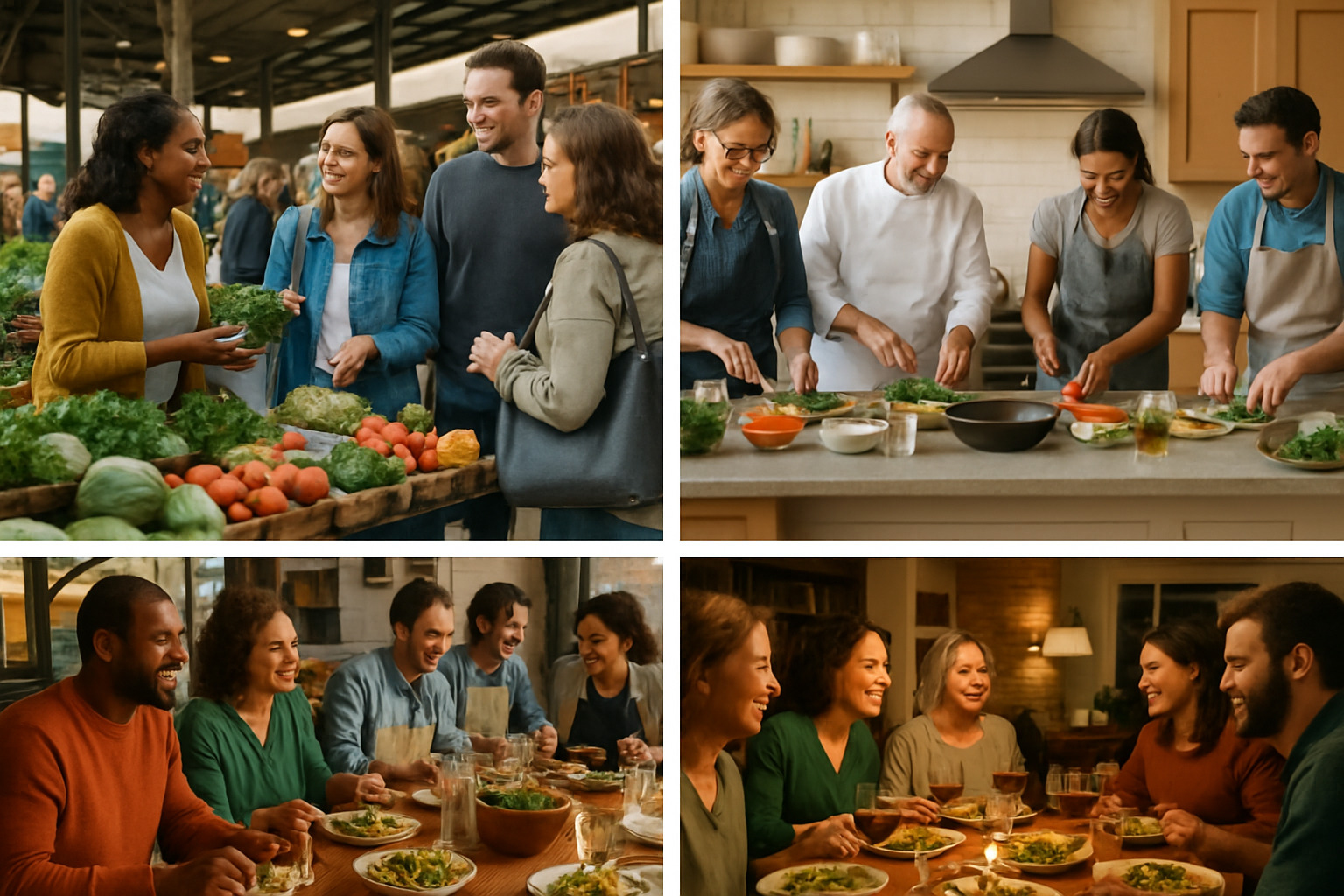
Matching Interests, Budgets & Diets
Vegetarian-focused programs have exploded in popularity as plant-based eating moved mainstream. Countries like India offer incredibly rich vegetarian traditions that expand understanding of meatless cooking possibilities.
Allergies and dietary restrictions receive much more attention from quality providers. European venues have become excellent at creating substitute dishes matching planned menu quality. However, severe allergies still require extra communication.
Family-friendly options recognize that culinary-minded parents want to share passions with children. Solo traveler options address growing numbers who refuse to let traveling alone limit culinary trips.
For specialized experiences, check out Chef-Led Experiences for inspiration.
Providers, Reviews & Red Flags
Vetted instructors separate professional operations from amateur hour. Quality providers carefully screen local hosts for both culinary expertise and cultural sensitivity.
Safety standards vary dramatically, but quality programs address food safety, kitchen hygiene, and emergency procedures proactively. Cancellation terms become crucial given advance planning required.
The World Food Travel Association provides industry insights and standards for evaluating provider quality.
Warning signs include pricing that seems too good to be true, vague itinerary descriptions, slow communication, and missing safety information.
Planning Your Culinary Workshop Travel Trip
The excitement of booking your first culinary workshop travel trip can quickly turn overwhelming, but a little preparation ensures your trip becomes everything you’ve dreamed of.
Start booking 3-6 months ahead of desired travel dates. The most sought-after programs fill up faster than a perfectly timed soufflé rises. Popular harvest season programs often sell out within weeks.
Your packing strategy should focus on comfort and practicality. Pack comfortable, closed-toe shoes for long market walks and kitchen standing time. Most programs provide aprons, but bringing your own ensures perfect fit. Don’t forget a dedicated notebook for those golden nuggets of wisdom that never make it into official recipes.
Travel insurance takes on special importance for culinary trips. Look for coverage including trip cancellation, medical emergencies, and unique aspects of culinary travel.
Your camera becomes your secret weapon for preserving techniques impossible to capture in written recipes. Document hand positions for pasta rolling or the exact color of properly caramelized onions.
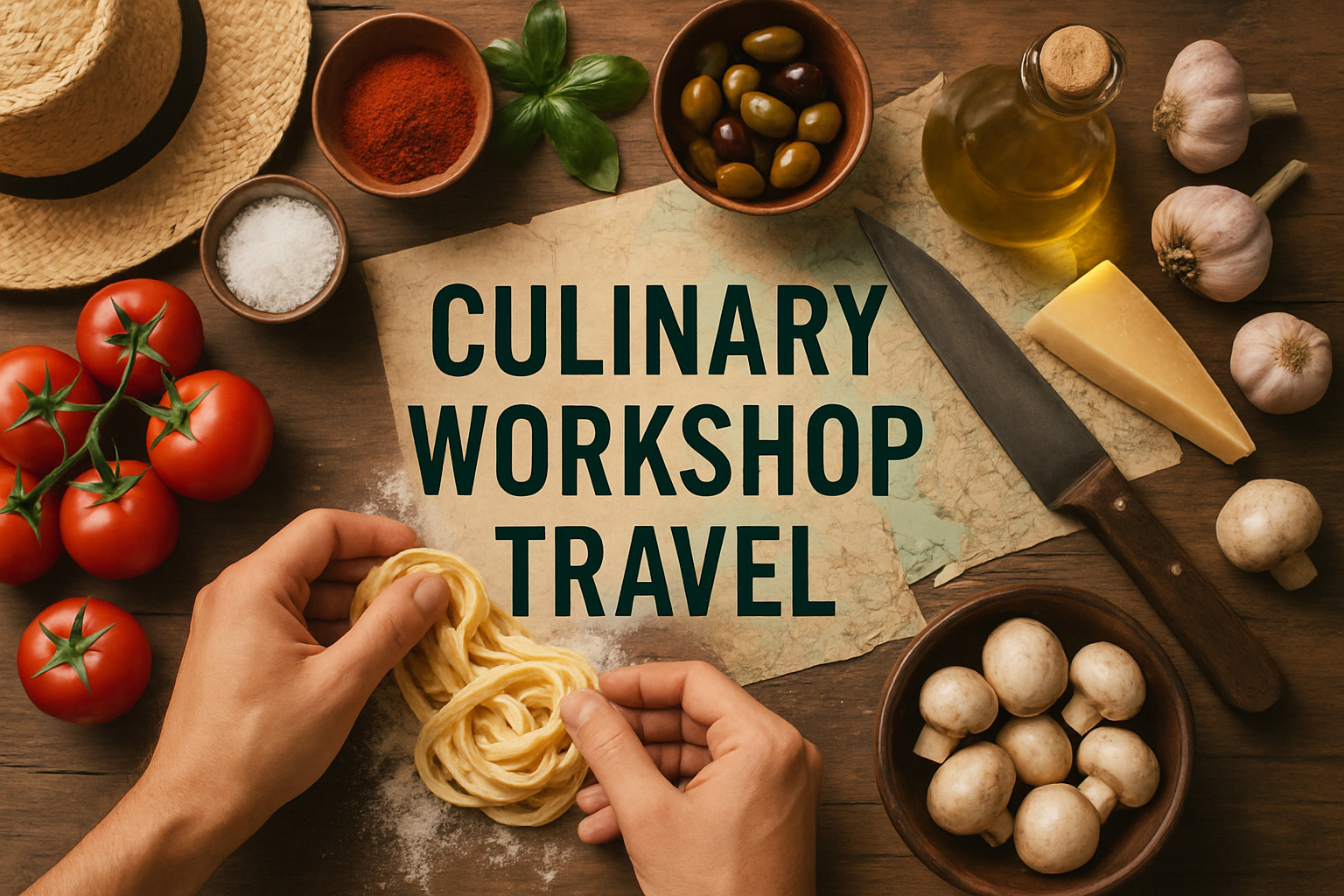
Budget & Inclusions Snapshot
Understanding culinary workshop travel costs helps you find the sweet spot between dreams and budget.
Budget-conscious programs typically run $1,500-2,500 for 3-5 days, featuring shared accommodations and group cooking sessions. Mid-range experiences cost $2,500-5,000 for 5-7 days, offering comfortable private accommodations and smaller groups. Luxury programs start around $5,000 for 7-10 days of pure indulgence.
Accommodation style dramatically affects both cost and authenticity. Staying in local homes often provides richer cultural immersion than international hotel chains, sometimes at lower costs.
Transportation, wine policies, and tipping expectations vary between programs and destinations. Budget an extra 10-15% of program cost for tips and unexpected expenses.
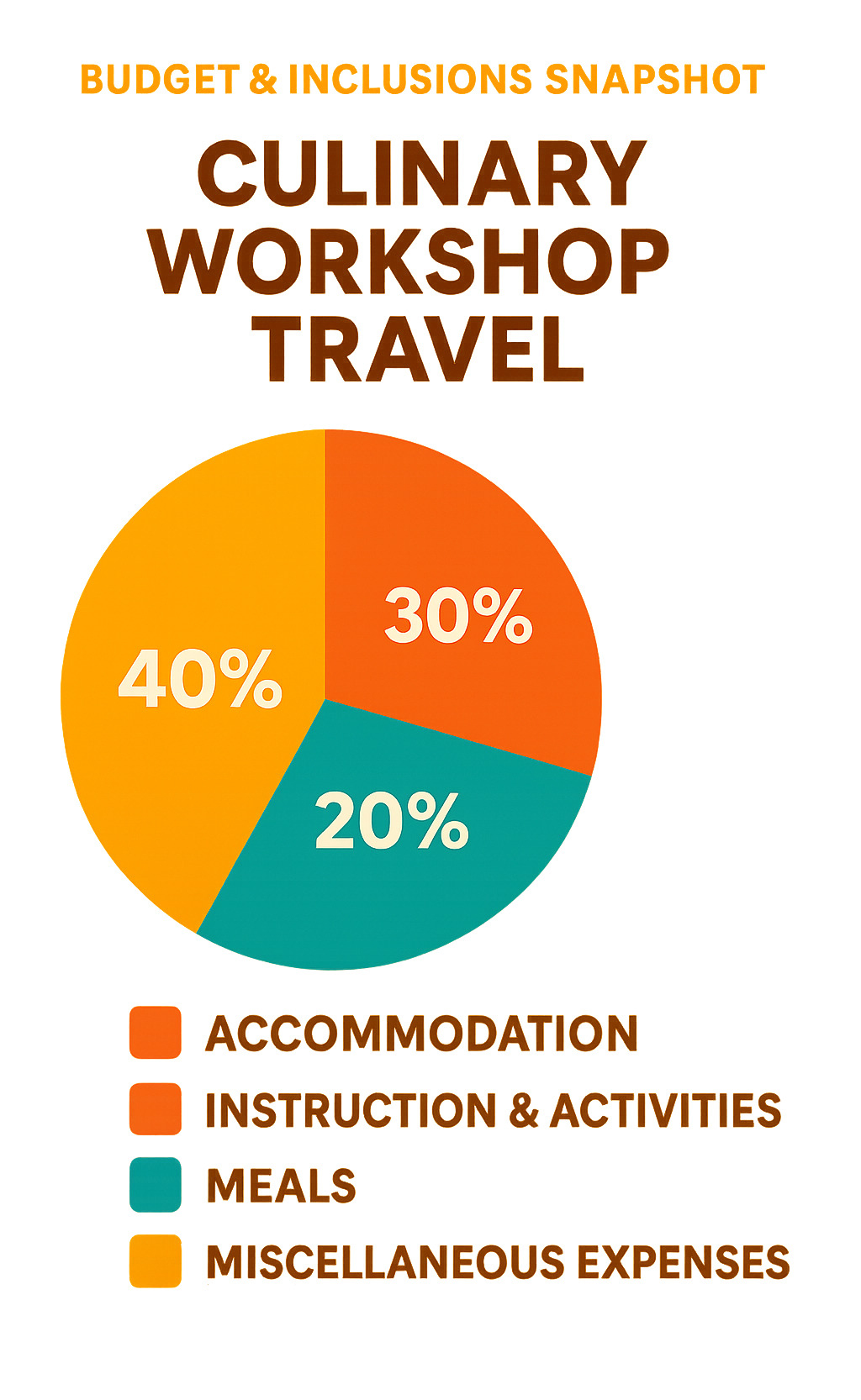
Bringing the Magic Home
The real test of successful culinary workshop travel happens months later in your own kitchen.
Digital recipe libraries have revolutionized how we maintain connections with culinary trips. Quality programs provide ongoing access to recipe collections, technique videos, and ingredient sourcing guides.
Online follow-up sessions keep learning alive and maintain friendships. The confidence boost from international cooking success often motivates continued learning. More info about Local Cooking Classes can help you find instruction building on travel experiences.
Equipment investments and ingredient sourcing become ongoing trips as you seek authentic components for newly learned recipes.
Frequently Asked Questions about Culinary Workshop Travel
What should I expect in a typical day?
Your culinary workshop travel day starts early around 7 AM with a trip to the local market, where you’ll find ingredients you never knew existed and learn the art of selecting perfect produce.
These market visits aren’t just shopping – they’re cultural immersion experiences lasting about two hours. You’ll chat with vendors who’ve been selling produce for generations and understand why certain ingredients are prized in local cuisine.
By 9 AM, you’re back in the kitchen, ready to transform market treasures into something delicious. Morning cooking sessions focus on fundamental techniques – proper knife skills, building flavor bases, and starting dishes that need time to develop.
Lunch becomes a celebration of your morning’s work. These meals stretch leisurely over an hour or two, giving you time to savor both food and stories behind each dish.
Afternoons offer variety – you might visit local wineries, explore historical sites, or simply rest. Some days include visits to artisan producers where you’ll see how traditional cheeses are aged.
Evening sessions dive deeper into complex techniques, building on your morning foundation. The day ends with everyone gathering around the table, sharing the fruits of your labor.
How are dietary restrictions handled?
Quality culinary workshop travel providers have gotten excellent at handling dietary restrictions. The key is communicating your needs clearly when you book.
Allergies are taken seriously by reputable providers. They’ll work with local chefs and markets to ensure your safety while providing authentic learning experiences. Instead of avoiding problem ingredients, good programs create substitute dishes teaching the same techniques.
If you’re vegetarian or vegan, many destinations have incredible plant-based culinary traditions. Mediterranean programs naturally feature vegetable-forward cooking, while places like India offer centuries of sophisticated vegetarian cuisine.
Gluten-free travelers will find some destinations easier than others. Programs in regions using rice, corn, or other grains adapt more easily than wheat-heavy cuisines.
For severe, life-threatening allergies, have detailed conversations with providers before booking about safety protocols and emergency procedures.
Are there options for private or family groups?
Private culinary workshop travel experiences offer incredible flexibility and personalization that group programs can’t match.
Family programs work wonderfully because cooking naturally brings generations together. Many providers offer age-appropriate activities where kids learn simple techniques while adults tackle complex dishes.
The beauty of private group experiences lies in customization. Want to focus entirely on pasta-making? Need everything dairy-free? Interested in learning dishes from your grandmother’s region? Private groups typically need 4-8 people minimum.
Solo travelers find that cooking’s communal nature creates instant connections. Corporate groups are finding culinary workshop travel for team building – working together to create meals builds relationships in ways traditional corporate events can’t match.
Conclusion
Your journey into culinary workshop travel opens doors to experiences that go far beyond typical vacations. These immersive trips create lasting changes in how you cook, eat, and connect with cultures around the world.
The magic happens when you realize you’re not just collecting recipes – you’re building genuine skills that transform your daily life. That confidence you feel when perfectly seasoning a dish or knowing exactly how pasta dough should feel? Those moments of pride come from real expertise earned in authentic kitchens alongside passionate local cooks.
Cultural understanding deepens with every market visit and shared meal. You’ll find yourself appreciating the stories behind dishes, understanding why certain ingredients pair beautifully together, and seeing food as a bridge between cultures rather than just sustenance.
The friendships formed over chopping boards and communal dinners often become lifelong connections. Fellow travelers become cooking companions back home, while local hosts sometimes extend invitations for return visits that feel more like family reunions than tourist experiences.
At The Dining Destination, we’ve seen how culinary workshop travel transforms people. Hesitant beginners return home hosting dinner parties with newfound confidence. Experienced cooks find techniques that revolutionize their approach to familiar ingredients. Everyone comes back with stories that make friends and family eager to plan their own culinary trips.
The beauty of these experiences lies in their lasting impact. Long after jet lag fades, you’ll find yourself recreating that perfect pasta sauce or sharing the story behind a spice blend you learned to make by hand. These skills and memories become part of who you are.
Whether you’re drawn to the pasta-making traditions of Italy, the spice markets of Morocco, or the farm-to-table philosophy of Provence, your perfect culinary trip awaits. The world’s kitchens are ready to welcome you, and the skills you’ll gain will enrich meals for years to come.
Ready to trade your tourist hat for a chef’s apron? Your taste buds – and your dinner guests – will thank you for taking that delicious leap into culinary workshop travel.
More info about travel-for-food trips can help you start planning your next culinary trip. The only question left is: which kitchen will welcome you first?
